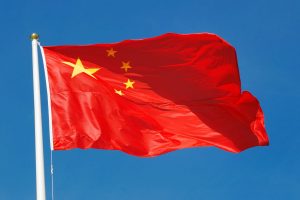External Affairs Minister S Jaishankar on Sunday asserted that adhering to agreements and understandings is a central element to ensuring stability and predictability in the Indo-Pacific.
His comments are significant against the backdrop of India’s repeated contention that China has violated various border pacts between the two countries from time to time.
Advertisement
The Indo-Pacific, Mr Jaishankar said, has been witnessing deeper tensions and sharper contestations. ”The scenario is intrinsically maritime in nature, involving respect for and observance of international law. There are other concerns, some related and some autonomous. Stronger assertions of interests is one issue; concern about unilateral changes to the status quo another. From India’s own experience, we can say that adhering to agreements and understandings is a central element to ensuring stability and predictability,” he said delivering the keynote address at ”Indian Ocean Conference 2025 : Voyage to New Horizons of Maritime Partnership” conference in Muscat.
Mr Jaishankar observed that changes in the global order may be expressed through new ideas and concepts. But they are also reflected in the evolving landscape. The Indian Ocean region is no exception to that rule. ”And this matters not just to us as inhabitants of this community, but given our salience in so many dimensions, to other regions and nations as well. After all, as we heard from previous speakers, the Indian Ocean is veritably a global lifeline. Its production, consumption, contribution and connectivity is central to the manner in which the world runs today,” he said.
Speaking about West Asia, he said, there is a serious conflict underway with the potential for further escalation and complication. At the same time, longstanding issues are being revisited, sometimes with a radically different approach. Its maritime consequence is visible in a serious disruption of global shipping, with considerable cost to economies. ”There are questions which arise from our ability and willingness to respond, as indeed from the partnerships relevant to that task,” he noted.
Talking about connectivity, he said it is vital to ensure that connectivity initiatives are consultative and transparent, not unilateral and opaque.
The minister also referred to the initiatives taken by India for forging partnerships and shouldering responsibilities, stepping up in times of trouble and providing leadership where required. In this regard, he referred to how the impact of COVID and conflict unfolded and how India became a source of vaccines, medicines, food, fuel and fertilizer for many others. The biggest commitment it made was to Sri Lanka – a financial package of USD 4 billion to stabilise its economy that had slid into a crisis.
The India-Middle East-Europe Economic Corridor (IMEC) and the India Myanmar Thailand Trilateral Highway (IMTT), he said, would be among the two key collaborative connectivity initiatives under consideration. The International North South Transport Corridor (INSTC) is another significant example. India is obviously the common element in all of them. IMEC and INSTC have an explicit maritime segment, while the IMTT would provide a land link between India and the Pacific, he said.
Mr Jaishankar said India has increasingly been active in a First Responder mode in the Indian Ocean region.
”Our voyage to new horizons is best done as a coordinated flotilla of the Indian Ocean. We are understandably a diverse group in terms of history, geography, development, politics or culture. But what unites us is a common devotion to the well-being of the Indian Ocean region,” he said.
Mr Jaishankar said, ”In a volatile and uncertain era, we seek stability and security as the baseline. But beyond that, there are ambitions and aspirations that we strive to achieve. They will be easier reached when we look out for each other, supplement our strengths and coordinate our policies.”











